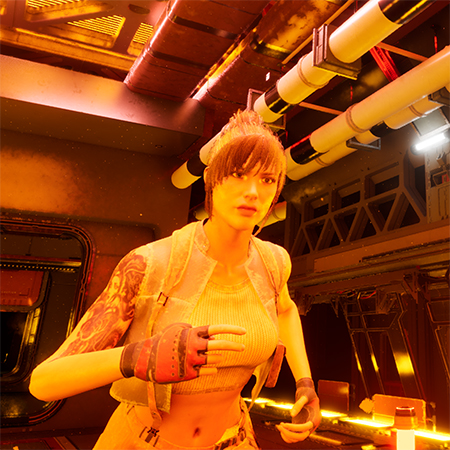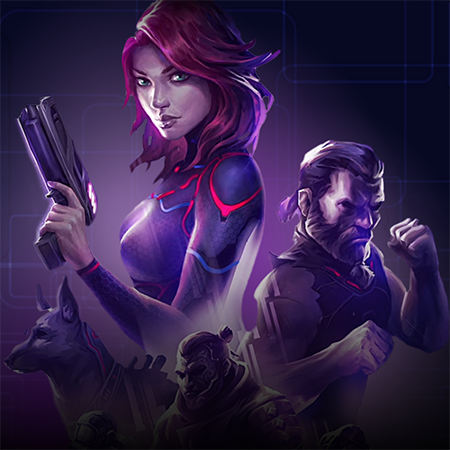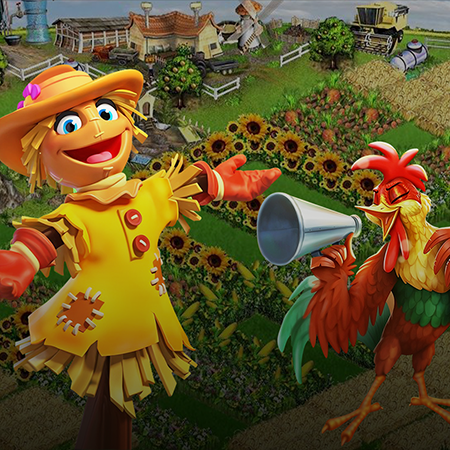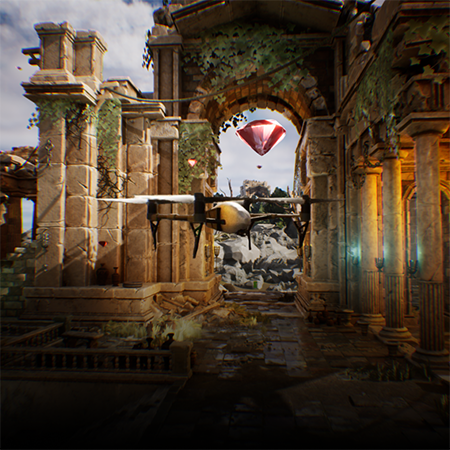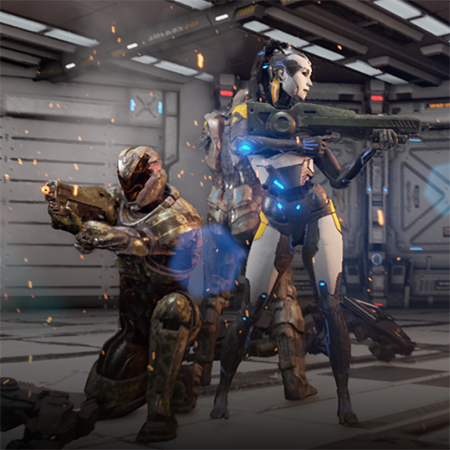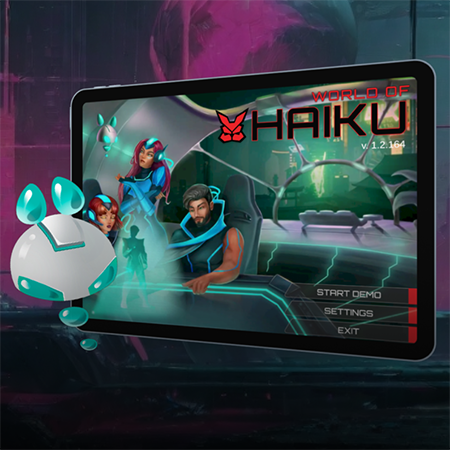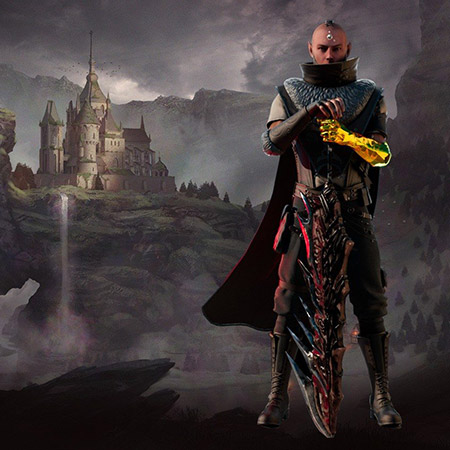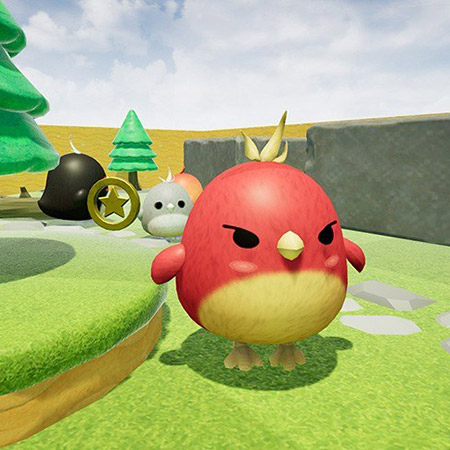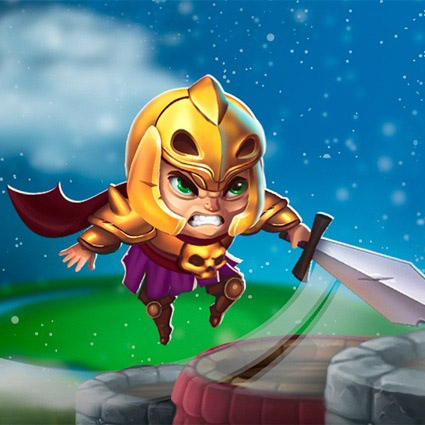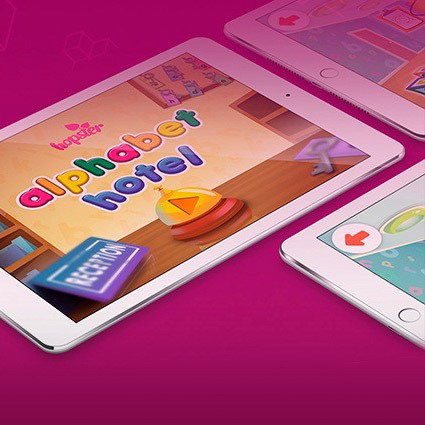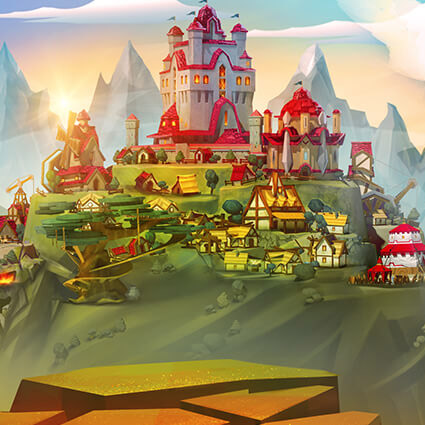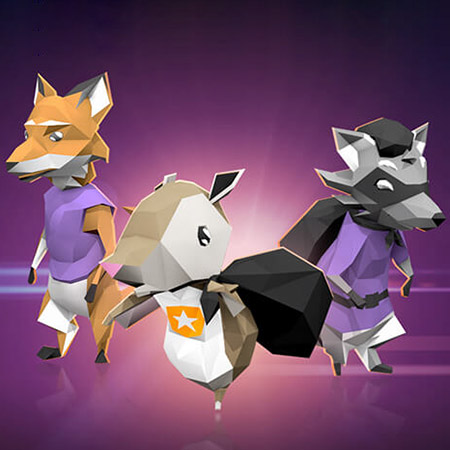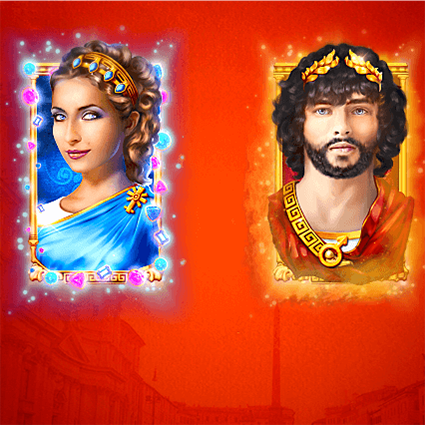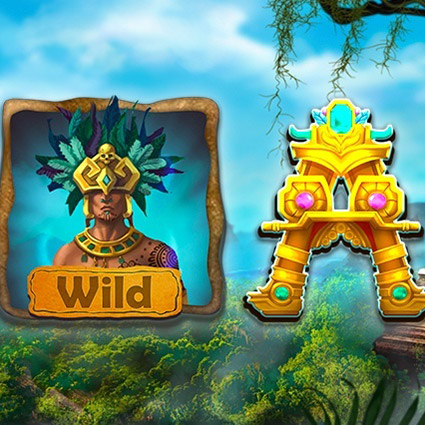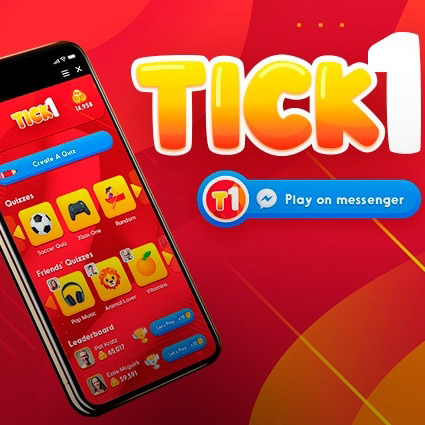Creating an online RPG game that captivates players involves understanding and implementing several key elements. Successful RPG game development requires attention to detail, engaging storytelling, and a user-friendly interface. Players are drawn to games that offer immersive experiences where their actions and decisions significantly impact the game world. Ensuring smooth gameplay mechanics and balancing challenges can keep players invested for extended periods.
Additionally, incorporating regular updates and listening to player feedback can help maintain interest and foster a loyal community. RPG game development is not just about coding but creating an experience that resonates with players and keeps them returning for more. Detailed character development, dynamic environments, and interactive storylines can make a significant difference. Crafting a compelling game involves a combination of creativity, technical skills, and a deep understanding of what players seek in an online RPG game. Focus on these aspects to create a game that stands out in the crowded market and keeps players excited.
The Fundamentals of Online RPG Games
Understanding the core components of online RPG games is essential for creating an engaging experience. These games blend storytelling, character development, and interactive gameplay. Knowing the key elements helps in delivering an immersive and enjoyable game. Detailed planning and execution are crucial for success in RPG game development. Developers must balance gameplay, create compelling narratives, and integrate social features to keep players engaged.
Defining Online RPG Games
Online RPG games, or role-playing games, allow players to assume the roles of characters in a fictional setting. These games emphasize character development, where players' choices impact their progression and story. Unlike traditional RPGs, online versions include multiplayer features, enabling real-time interactions with other players. The gameplay typically involves quests, missions, and battles, with a focus on narrative and player agency.
Successful online RPGs offer vast worlds to explore, dynamic characters, and engaging plots, keeping players invested for long periods. Clear objectives, intricate storylines, and seamless multiplayer integration are vital components of defining an online RPG game. Additionally, developers often incorporate elements such as crafting, trading, and social interactions, enhancing the overall player experience.
History of Online RPGs

The history of online RPGs dates back to the late 1970s with the development of text-based games like MUDs (Multi-User Dungeons). These early games laid the foundation for modern MMORPGs (Massively Multiplayer Online Role-Playing Games). The 1990s saw significant advancements with titles like Ultima Online and EverQuest, which introduced graphical interfaces and large player bases. These games set new standards for online interactions and community building.

The 2000s brought further evolution with the release of World of Warcraft, which revolutionized the genre with its expansive world and engaging content. Online RPGs continue to evolve today, incorporating advanced graphics, complex storylines, and innovative gameplay mechanics, offering players immersive experiences and fostering vibrant communities. Modern games like Final Fantasy XIV and The Elder Scrolls Online continue to push the boundaries, introducing new gameplay elements and expanding the possibilities of what online RPGs can offer.
Key Features That Make an RPG Game Stand Out
Creating an online RPG game that stands out requires attention to several key features. Players are drawn to games that offer a rich, immersive experience, engaging storylines, and dynamic gameplay. These elements collectively contribute to the game's success and player retention.
Incorporating these features effectively can significantly enhance the appeal and success of an online RPG game, ensuring it stands out in a competitive market.
Types of Online RPG Games
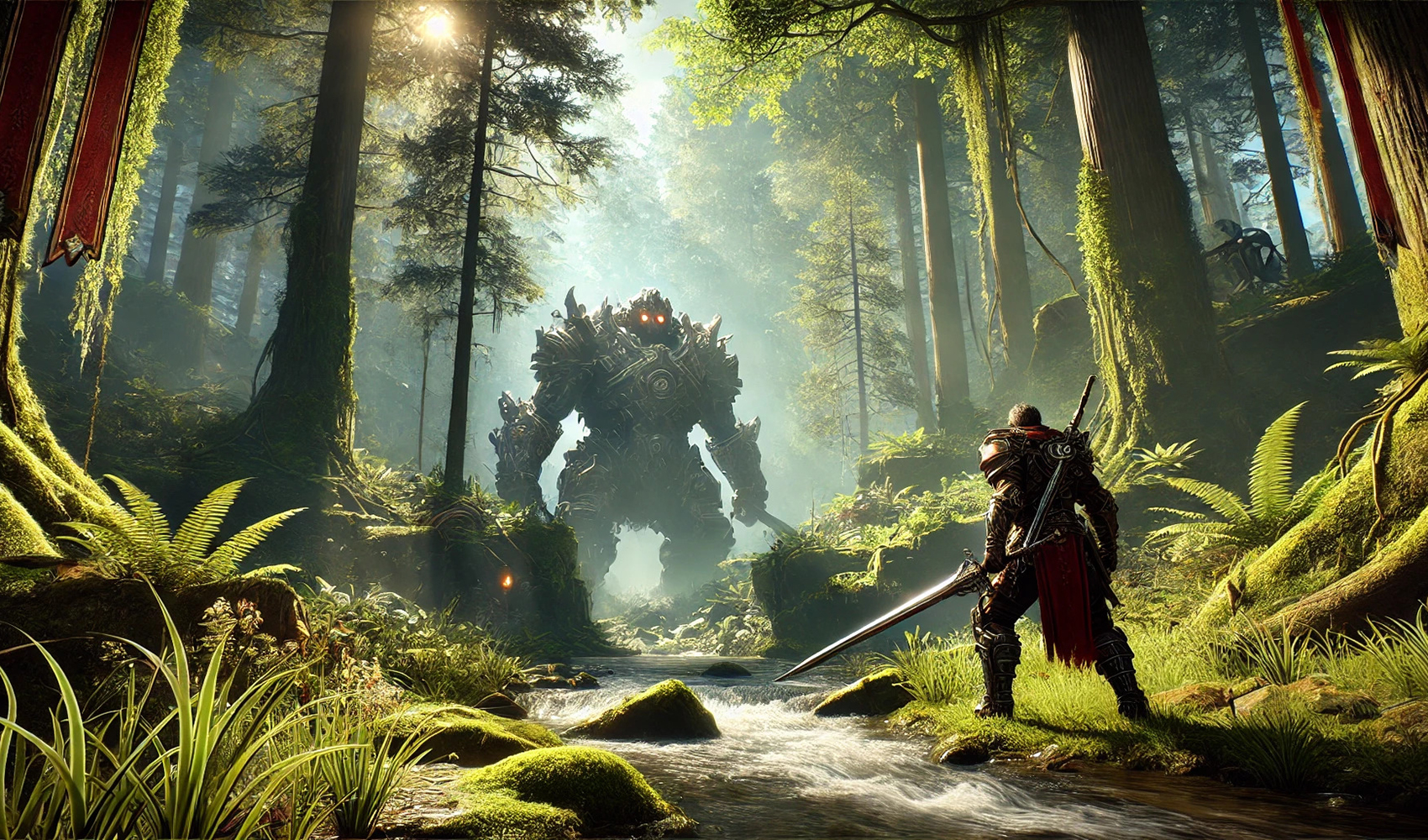
Online RPG games come in various types, offering unique experiences and gameplay mechanics. Understanding these types helps developers cater to player preferences and create more engaging games.
Massively Multiplayer Online RPGs (MMORPGs). These games feature large-scale worlds where thousands of players can interact simultaneously. MMORPGs often include extensive social features, such as guilds and player-driven economies, fostering a sense of community and collaboration.
Action RPGs (ARPGs). Combining elements of traditional RPGs with fast-paced combat, ARPGs focus on real-time action and skill-based gameplay. Players must master timing and strategy to defeat enemies and progress through the game.
Tactical RPGs (TRPGs). These games emphasize strategic planning and tactical combat. Players control a party of characters and make decisions based on terrain, positioning, and enemy behavior. TRPGs often feature complex storylines and deep character customization.
Sandbox RPGs. Offering open-world exploration and player freedom, sandbox RPGs allow players to shape their adventures. These games often include crafting, building, and resource management, providing a dynamic and personalized experience.
Dungeon Crawlers. Focused on exploring dungeons and battling enemies, dungeon crawlers emphasize loot collection and character progression. Players navigate procedurally generated or pre-designed dungeons, facing various challenges and earning rewards.
Role-Playing Simulations. Blending RPG elements with simulation gameplay, these games allow players to manage and develop characters' lives. Farming, building relationships, and managing resources create a rich and immersive experience.
Understanding these different types of online RPG games enables developers to create diverse and engaging experiences that cater to various player interests and preferences.
Popular Genres and Themes
Online RPG games span many genres and themes, each attracting different player demographics and preferences. Understanding popular genres and themes can help developers create games that resonate with their target audience.
- Fantasy. One of the most popular genres, fantasy RPGs feature magical worlds, mythical creatures, and epic quests. Players can escape into realms filled with adventure and wonder, often inspired by classic literature and mythology.
- Science Fiction. Sci-fi RPGs transport players to futuristic settings, featuring advanced technology, space exploration, and alien civilizations. Complex narratives about humanity, ethics, and the impact of technology on society are familiar in these games.
- Post-Apocalyptic. Set in worlds ravaged by disaster, post-apocalyptic RPGs explore themes of survival, rebuilding, and human resilience. Harsh environments, scavenging for resources, and moral dilemmas often define the gameplay.
- Historical. Historical RPGs immerse players in different time periods, offering a blend of educational content and engaging gameplay. Accurate depictions of historical events, characters, and settings provide a unique and immersive experience.
- Horror. Horror RPGs focus on creating a sense of fear and suspense with dark atmospheres, terrifying creatures, and psychological elements. Survival challenges and unraveling mysteries add to the spine-chilling settings.
- Steampunk. Combining elements of science fiction and fantasy, steampunk RPGs are set in worlds inspired by 19th-century industrial technology. Steam-powered machinery, airships, and Victorian-era aesthetics create a unique and imaginative experience.
Exploring these popular genres and themes allows developers to create online RPG games that appeal to a broad audience. Diverse and captivating experiences tailored to various player interests can enhance the game's success and engagement.
Want to build a commercially successful online RPG game?
Planning Your RPG Online Games
If you want to win in any online role-playing game, you need to prepare beforehand. Having a well-defined plan to follow from inception to completion is essential prior to beginning development. To do this, one must be familiar with the market, identify the intended consumers, and establish reasonable objectives. Not only does a well-organized strategy make development go more smoothly, but it also guarantees that players will enjoy the end result. Devoting effort to meticulous preparation may greatly lessen the likelihood of expensive errors and assist in keeping concentration on making a game that distinguishes out in a competitive market.
1. Market Research and Audience Analysis
The first stage in creating a prosperous online role-playing game is comprehending the market and your intended players. You may learn a lot about the current trends, popular genres, and competitive environment by conducting market research. Game designers can better satisfy the demands and expectations of prospective players by studying their habits and preferences.
Important choices, such as gameplay mechanics, story themes, and monetization tactics, can be informed by identifying your audience's demographic features, gaming habits, and preferences. Looking at popular games on the market helps you determine what players like and where you can improve. An in-depth examination of player motives, pain points, and wants is necessary for audience analysis, which goes beyond simple demographics. In order to create a game that draws in players and keeps them hooked for the long haul, this data is crucial.
2. Setting Clear Objectives and Goals
Establishing clear objectives and goals is essential for guiding the development of your online RPG game. Objectives should outline what the game aims to achieve, such as player engagement, revenue targets, or critical acclaim. These goals should be specific, measurable, achievable, relevant, and time-bound (SMART). For instance, setting a goal to reach a certain number of active users within the first six months post-launch can help focus marketing efforts and development priorities.
Goals should also reflect the unique selling points of your game, ensuring that every aspect of development aligns with these core objectives. Regularly reviewing and adjusting goals throughout the development process can help the team stay on track and adapt to any changes in the market or player expectations. By setting clear, actionable goals, developers can maintain a consistent vision and deliver a game that meets or exceeds player expectations.
3. Creating a Compelling Storyline and World
A compelling storyline and immersive game world are critical components of any successful online RPG game. The narrative should draw players in from the very beginning, offering rich characters, engaging plot twists, and meaningful choices that impact the game's outcome. World-building is equally important, as the setting must feel alive and vibrant, with its history, cultures, and ecosystems. Players should feel a sense of discovery as they explore new regions, interact with diverse characters, and uncover hidden lore.
To achieve this, the storyline must be tightly integrated with the gameplay, ensuring that quests, missions, and character interactions all contribute to the overarching narrative. Consistency in the world's rules, geography, and culture helps create a believable environment in which players will want to immerse themselves. Crafting a storyline and world that resonates with players requires a deep understanding of what drives player engagement and satisfaction. The more connected players feel to the story and the world, the more likely they will stay invested in the game over time.
Design and Game Mechanics
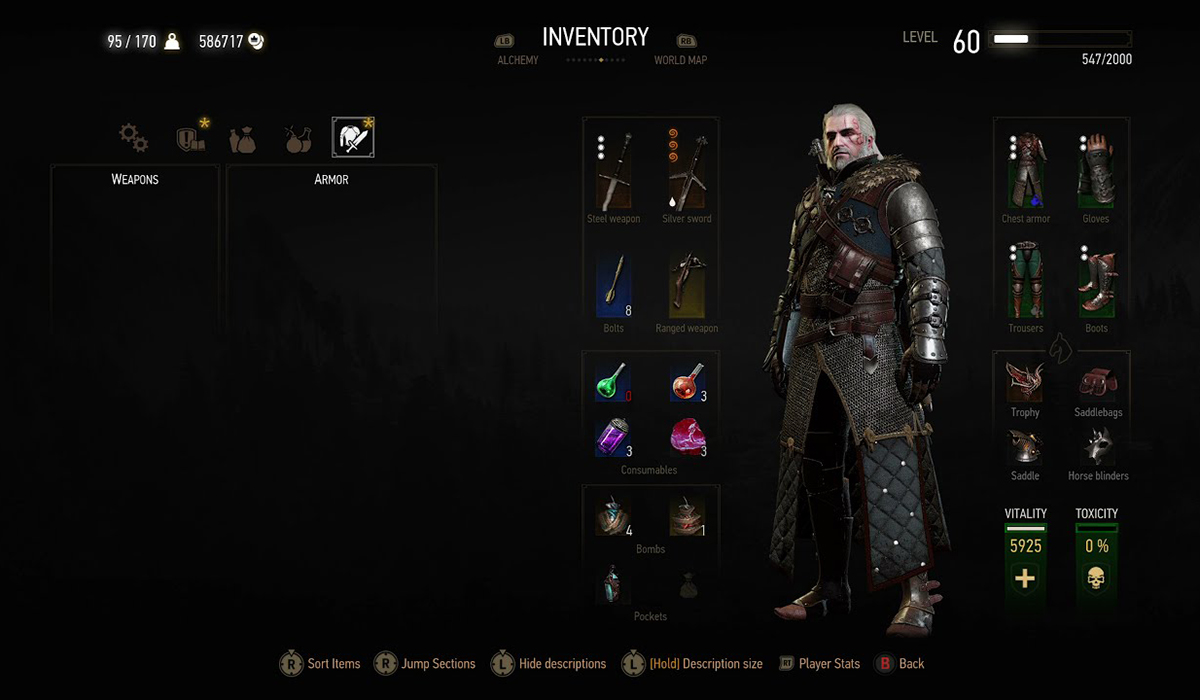
The Witcher 3
The design and mechanics of an online RPG game are the backbone of the player experience. Careful consideration must be given to how characters evolve, how combat is handled, and how various systems within the game interact. Each of these elements plays a crucial role in keeping players engaged and ensuring that the game feels both challenging and rewarding. Successful RPGs often excel in these areas by offering innovative mechanics that are both intuitive and deep.
Character Development and Progression Systems
Character development lies at the heart of an engaging RPG experience. Players need to feel a connection to their characters, which often begins with meaningful customization options. Games like The Witcher 3 and Skyrim have shown how offering diverse skill trees, attributes, and abilities can allow players to shape their characters in unique ways. Progression systems should offer clear and satisfying rewards that reflect the player’s journey.
For instance, unlocking new abilities or gaining access to previously unreachable areas creates a sense of achievement and growth. The progression system should challenge players and adapt to their individual playstyles. Balancing complexity with accessibility is key, as overly complex systems can overwhelm players, while overly simple ones may fail to engage them. Regular updates and expansions can introduce new progression paths, keeping the experience fresh and inviting players to continue exploring their character’s potential.
Combat Systems and Gameplay Mechanics
Combat in RPGs can make or break the player experience. A well-designed combat system must be intuitive and challenging, allowing players to engage with the game on multiple levels. Games like Dark Souls have demonstrated the power of tight, responsive controls combined with strategic depth. Players should feel that their success in combat is a result of skill and strategy rather than luck or button-mashing. Real-world examples, such as World of Warcraft, show how varied combat roles — tank, healer, DPS — can add depth to the gameplay and encourage teamwork in multiplayer settings.
Integrating mechanics like cooldowns, resource management, and environmental interactions can further enrich the combat experience. Experimentation with different weapons, abilities, and tactics should be rewarded, encouraging players to find their combat style. Ensuring that combat evolves as players progress through the game is essential to keeping the experience engaging and preventing it from becoming repetitive.
Balancing and Tuning Game Mechanics
Balancing game mechanics requires a careful and ongoing process to ensure that all elements of the game work harmoniously. An imbalance in character abilities, enemy strength, or resource availability can lead to frustration and disengagement. Successful games like League of Legends regularly adjust mechanics based on player feedback and data analysis, showing the importance of iterative tuning. Developers must consider how different player types — casual, hardcore, solo, and multiplayer — will interact with the game mechanics.
Offering different difficulty levels or scalable challenges can help cater to a broad audience without sacrificing the core experience. It’s also important to monitor how new updates and expansions affect the existing balance, as introducing new content can unintentionally disrupt the game’s equilibrium. Player testing and community feedback are invaluable in identifying balance issues before they become problematic. By maintaining a fair and challenging environment, players remain engaged and motivated to improve their skills.
Online RPG Game Development Tips
Developing an online RPG game requires careful planning, technical expertise, and a deep understanding of what players seek in a gaming experience. Following best practices in technology selection, feature implementation, and quality assurance can significantly enhance the development process. These tips focus on creating a game that is both engaging and technically sound, ensuring a smooth launch and long-term success.
Choosing the Right Tech Stack
Selecting the appropriate technology stack is a crucial decision in RPG game development. The tech stack determines the performance, scalability, and flexibility of the game. For instance, Unity and Unreal Engine are popular choices due to their robust toolsets and support for complex 3D environments. A good tech stack should also include a reliable server infrastructure capable of handling high volumes of concurrent users without latency issues. Games like Fortnite demonstrate the importance of a well-chosen backend system, which can support real-time interactions across a global player base.
Additionally, considering cross-platform compatibility early in development ensures that the game can reach a wider audience, whether they play on PC, consoles, or mobile devices. Security is another critical factor; implementing secure protocols and encryption methods helps protect user data and maintain trust. Thoroughly researching and testing different technologies can help identify the best fit for your specific game requirements, ultimately contributing to a more stable and enjoyable player experience.
Implementing Core Features and Functionalities
Implementing core features and functionalities defines the player experience in an online RPG. Essential components such as character creation, inventory management, quest systems, and multiplayer interactions need to be carefully designed and seamlessly integrated. World of Warcraft is a prime example of a game that excels in implementing a wide array of features, each contributing to an immersive and cohesive world. Prioritizing features that align with the game's core vision ensures that development efforts remain focused and resources are allocated efficiently.
Developers should also consider future scalability when implementing features, allowing for easy expansion as the game grows. Integrating third-party services, such as payment gateways or social media platforms, can enhance the game's functionality and provide additional value to players. Regularly updating these features based on player feedback helps keep the game relevant and engaging. Ensuring that all core functionalities harmonize can elevate the overall gaming experience, making it more intuitive and satisfying for players.
Testing and Debugging
Thorough testing and debugging are essential to delivering a polished online RPG game. Comprehensive testing phases, including alpha and beta tests, help identify and resolve issues before the game's official release. Games like Cyberpunk 2077 have shown the pitfalls of insufficient testing, where technical problems can severely impact player satisfaction and sales. Functional testing ensures that all game features work as intended, while stress testing assesses the game's performance under high player loads.
Debugging should be an ongoing process, with developers quickly addressing bugs reported by testers and the community. Automated testing tools can also assist in identifying issues that might be missed during manual testing. Maintaining a detailed bug-tracking system allows the development team to prioritize and address issues efficiently. Post-launch, continuous monitoring, and patching are necessary to fix any emerging bugs or performance issues. By committing to rigorous testing and timely debugging, developers can significantly enhance the quality and reliability of the final product, leading to better player retention and positive reviews.
Bettering User Experience
In order to keep players interested and satisfied with an online role-playing game, it is essential to improve the user experience. A game's impact on players may be greatly enhanced by concentrating on its immersive graphics, responsive audio, user-friendly interfaces, and seamless performance. Retaining gamers and fostering favorable word-of-mouth are both aided by putting an emphasis on user experience.
Creating Engaging Visuals and Audio
Engaging visuals and immersive audio are fundamental to drawing players into the game world. High-quality graphics, detailed character models, and dynamic environments contribute to the overall atmosphere and aesthetic appeal. Games like Horizon Zero Dawn stand out for their stunning visual design and rich, vibrant environments, which deeply engage players. Similarly, Ori and the Blind Forest uses a combination of beautiful hand-painted artwork and a moving musical score to create an emotionally charged experience.
Audio design is equally crucial; the soundscape in Hellblade: Senua's Sacrifice enhances its psychological depth and immersion. Developers should ensure that visuals and audio are not only high quality but also serve the game's narrative and gameplay. Customizable audio and visual settings allow players to tailor their experience according to personal preferences and hardware capabilities, further improving user satisfaction. By investing in top-tier visuals and audio, a game can significantly elevate the player experience and leave a lasting impression on its audience.
Designing an Intuitive User Interface
A well-designed UI should be easy to navigate, with clear menus and controls that do not overwhelm the player. Stardew Valley is a prime example of a game that balances simplicity with functionality, offering a UI that is both user-friendly and aesthetically pleasing. In contrast, No Man’s Sky provides a more complex interface that still remains intuitive, allowing players to manage inventory, resources, and exploration without confusion.
The key is to present information in a way that is accessible and easily understood, minimizing the need for extensive tutorials or manuals. Consistency in design elements, such as fonts, icons, and color schemes, helps create a seamless experience. Additionally, offering customizable UI options, like in World of Tanks, can cater to a wider range of players, allowing them to adjust the interface to their personal preferences. A well-crafted UI enhances the overall gameplay experience, making it easier for players to immerse themselves in the game world.
Ensuring Smooth Performance and Stability
Smooth performance and stability are critical for delivering a satisfying online RPG experience. Technical issues such as lag, frame drops, and crashes can frustrate players, leading to a loss of interest. Final Fantasy XIV and Destiny 2 have shown the importance of optimizing server infrastructure to handle large numbers of players without compromising performance. Efficient coding practices and regular performance testing are essential for minimizing latency and ensuring the game runs smoothly across various platforms.
The importance of stability becomes particularly evident in games like Apex Legends, where even a slight delay can affect gameplay outcomes. Regular updates and patches should address emerging issues, improve performance, and fix bugs hindering the gaming experience. Developers can also offer players performance settings, allowing them to adjust graphical and processing demands according to their hardware capabilities. Ensuring a stable, smooth gameplay experience enhances player satisfaction and builds trust and loyalty, encouraging long-term engagement with the game.
Marketing and Launching Your Online RPG Game
Effective marketing and a well-executed launch are critical to the success of your online RPG game. A solid strategy ensures that your game reaches the right audience, builds anticipation, and achieves a strong market presence from day one. Focusing on pre-launch efforts, community building, and post-launch activities can significantly boost your game's visibility and long-term success.
Crafting a Pre-Launch Marketing Strategy
A robust pre-launch marketing strategy lays the foundation for your game’s success. Creating a plan that generates buzz and excitement well before the game’s release is essential.
- Identifying your target audience. Understand who your players are, including their preferences, interests, and where they spend time online.
- Developing a solid brand identity. Create a memorable logo, visual style, and messaging that resonates with your audience.
- Utilizing social media and content marketing. Share teasers, behind-the-scenes content, and gameplay footage to build anticipation.
- Engaging with influencers and gaming communities. Collaborate with streamers, bloggers, and YouTubers with a strong RPG community following to spread the word about your game.
- Setting up a pre-order campaign. Offer exclusive in-game content or early access to incentivize early purchases, helping to generate initial sales momentum.
A well-crafted pre-launch strategy positions your game for a successful release, ensuring it reaches a broad audience.
Building a Community Around Your Game
Building a strong community is vital for the long-term success of your online RPG game. A dedicated player base provides valuable feedback and helps spread the word about your game. Start by creating spaces where players can interact, such as forums, Discord servers, and social media groups. Games like Path of Exile and Warframe have thrived due to their active and engaged communities. Regularly engage with players by hosting Q&A sessions, live streams, and in-game events to maintain interest and build loyalty.
Offering early access or beta testing to community members also fosters a sense of ownership and commitment. Listening to community feedback and incorporating it into future updates helps build trust and ensures players feel valued. A thriving community enhances the player experience and contributes to the game's continued growth and popularity. By focusing on community building, developers can create a supportive environment where players feel connected and invested in the game's success.
Launching and Post-Launch Strategies
The launch of your online RPG game is a critical moment that can determine its long-term success. A well-coordinated launch strategy ensures everything runs smoothly and the game reaches its intended audience. On launch day, ensure that servers are stable and all marketing channels are fully activated. Games like The Elder Scrolls Online have shown the importance of a strong launch, where technical readiness and effective promotion can lead to immediate success.
- Monitoring player feedback. Actively engage with players on social media and forums to address any issues or concerns.
- Providing timely updates and patches. Quickly resolving bugs or performance issues helps maintain player trust and satisfaction.
- Implementing post-launch content plans. Regularly releasing new content, such as expansions, events, or new features, keeps the game fresh and engaging for players.
- Offering promotional events. Special offers or in-game events can boost player engagement and attract new players in the weeks following the launch.
Post-launch strategies should focus on sustaining momentum, building on the initial success, and ensuring that players remain engaged and invested in the game for the long term.
Post-Launch Support and Updates
Supporting your online RPG game post-launch is as crucial as the development and launch phases. Consistent updates, player engagement, and well-planned monetization strategies ensure that the game remains relevant, enjoyable, and profitable over time. Effective post-launch support helps maintain player interest and fosters a loyal community that will sustain the game’s longevity.
Gathering and Responding to Player Feedback
Player feedback is invaluable for refining and improving your game post-launch. Engaging with your community allows you to understand what players enjoy and where they encounter issues. Games like No Man's Sky have demonstrated the importance of actively listening to players, using feedback to guide substantial updates that significantly improve the game's reception. Create channels for feedback collection, such as in-game surveys, forums, or social media platforms, ensuring players have a voice in the game's evolution.
Prioritize the feedback by categorizing it into actionable insights and identifying common themes or recurring issues. Developers should respond promptly to feedback, particularly when addressing bugs or balance concerns. Acknowledging player contributions fosters community and trust, making players feel that their input directly impacts the game's future. Such an approach enhances the overall player experience and strengthens the relationship between the developers and the gaming community.
Regular Content Updates and Expansions
Keeping your game fresh and engaging requires regular content updates and expansions. These updates provide players with new experiences, ensuring they remain invested in the game. For instance, The Division 2 and Guild Wars 2 have maintained player interest by consistently introducing new missions, characters, and storylines. A well-planned content roadmap can outline the release of new features, events, or expansions, giving players something to look forward to. Seasonal events, special in-game items, and limited-time challenges can boost engagement and bring players back to the game.
Expansions can offer more substantial content, such as new regions, story arcs, or gameplay mechanics, significantly enhancing the gaming experience. Communicating these updates effectively through patch notes, trailers, and community announcements helps build excitement and anticipation among players. Regular content updates sustain player interest and demonstrate the developers' ongoing commitment to improving and expanding the game.
Long-Term Monetization Strategies
Sustainable monetization is vital to the long-term success of an online RPG game. Developing strategies that balance profitability with player satisfaction is essential. Successful games like Genshin Impact and Warframe have implemented monetization models that include microtransactions, cosmetic items, and battle passes, all while avoiding pay-to-win scenarios that could alienate players.
Cosmetic enhancements, such as character skins or decorative items, allow players to personalize their experience without impacting gameplay balance. Subscription models or premium memberships can provide additional content or benefits for a recurring fee, offering value to dedicated players.
Additionally, introducing a battle pass system, which rewards players with exclusive items and bonuses for completing in-game challenges, can drive engagement and revenue. Regularly reviewing and adjusting monetization strategies based on player feedback and market trends ensures they remain fair and appealing. By implementing thoughtful and player-friendly monetization methods, developers can create a revenue stream supporting the game’s growth while satisfying the player base.
Iconic Online RPGs that Have a Story to Tell
Several online RPGs have left a lasting impact on the gaming industry, each with its unique story. These games have set benchmarks for storytelling, character development, and immersive gameplay, influencing countless titles that followed.
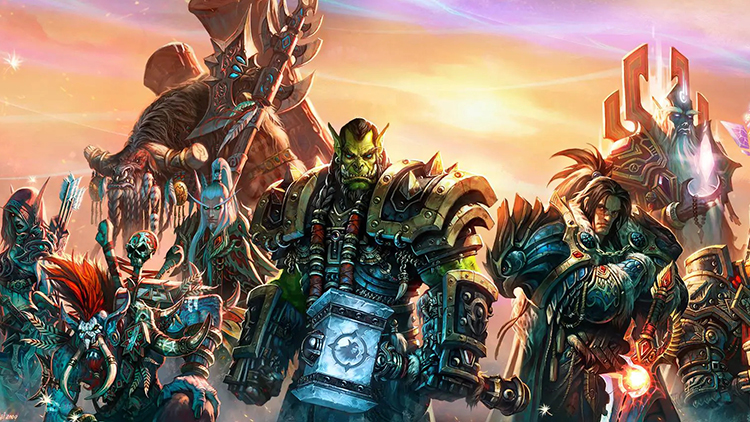
World of Warcraft. Launched in 2004, World of Warcraft revolutionized the MMORPG genre with its expansive world, deep lore, and vibrant community. Its ongoing narrative has kept players engaged for nearly two decades, making it a pillar of the online RPG landscape.
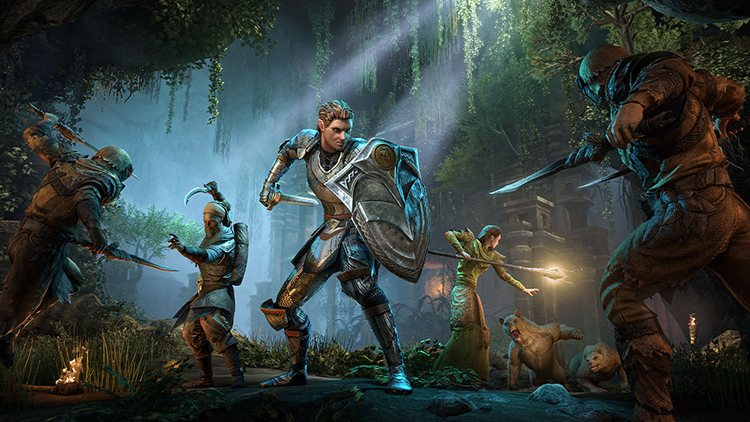
The Elder Scrolls Online builds upon the rich history of the Elder Scrolls series, offering players an expansive world to explore, filled with detailed quests and an evolving storyline. The game’s ability to adapt and introduce new content has made it a fan favorite.
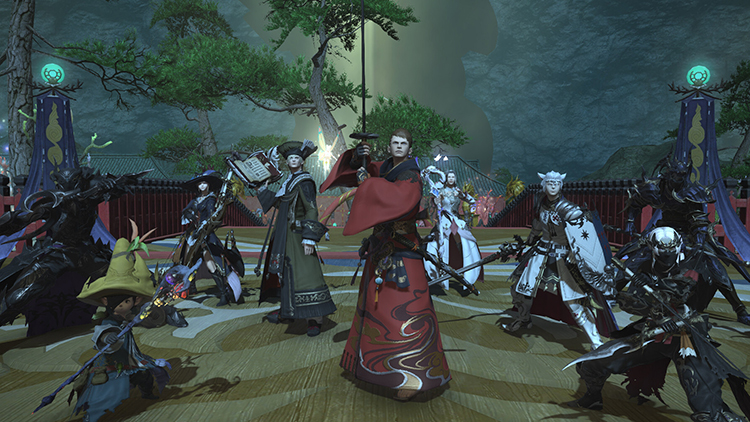
Final Fantasy XIV. Final Fantasy XIV initially faced a troubled launch, but its relaunch as A Realm Reborn in 2013 turned it into one of the most beloved MMORPGs. Its compelling narrative and regular expansions have created a thriving community and a game that continues to grow in popularity.
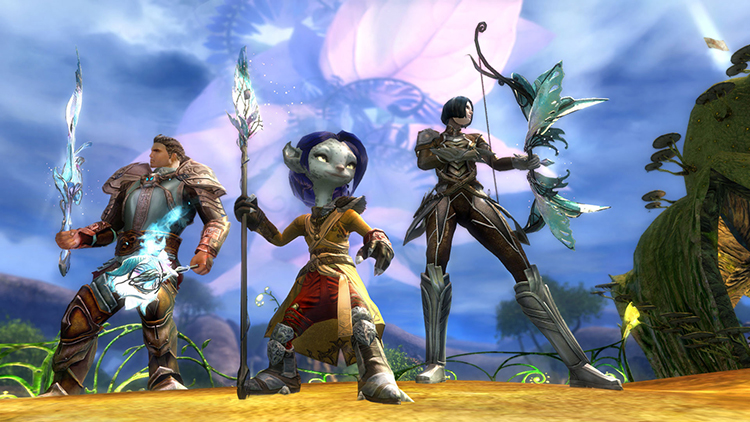
Guild Wars 2. Known for its dynamic events and player-driven storylines, Guild Wars 2 broke away from traditional quest structures, offering a more fluid and immersive experience. Its living world updates ensure the story evolves, keeping the game world alive and engaging for its player base.
These iconic online RPGs have demonstrated the power of storytelling in gaming, showing that a well-crafted narrative can turn a game into a lasting phenomenon. Each of these games has captivated players with its story and contributed to the genre's evolution, inspiring future titles and setting new standards for what an RPG can achieve.
How to Make an Online RPG Game with Game-Ace
Creating a successful online RPG game requires expertise, creativity, and a deep understanding of the gaming industry. Game-Ace, a custom game development company, offers comprehensive services to bring your vision to life. Our team specializes in developing immersive online RPGs that resonate with players, from initial concept design to final deployment.
With a proven track record in delivering high-quality games, we focus on creating unique experiences tailored to your target audience. Whether you need assistance with game mechanics, character development, or visual design, Game-Ace has the skills and experience to make your project a success. Ready to start your journey? Contact us today to discuss how we can help turn your ideas into a captivating online RPG game that stands out in the market.
 How to Design Learning Games That Teach Real-World Skills to Young Learners
How to Design Learning Games That Teach Real-World Skills to Young Learners 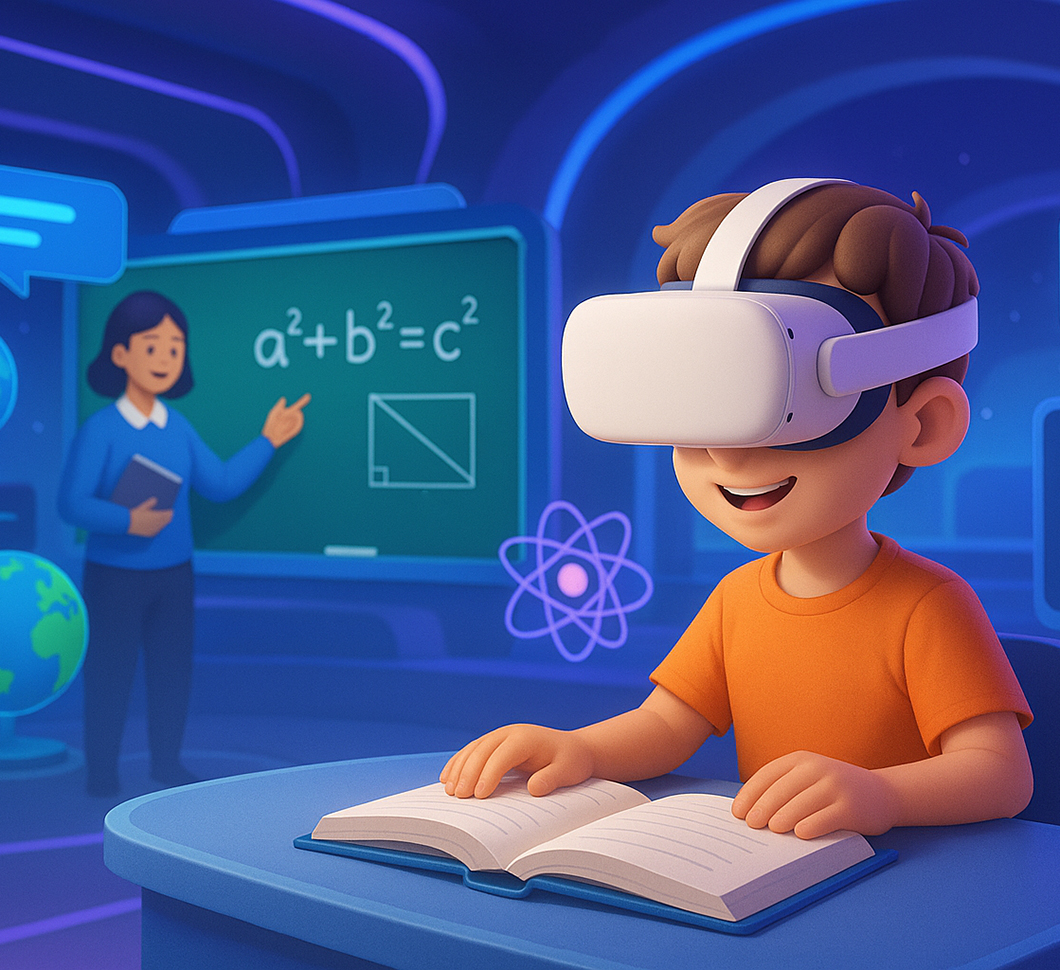 Level Up Learning: How Game-Based Learning Drives Real Results
Level Up Learning: How Game-Based Learning Drives Real Results 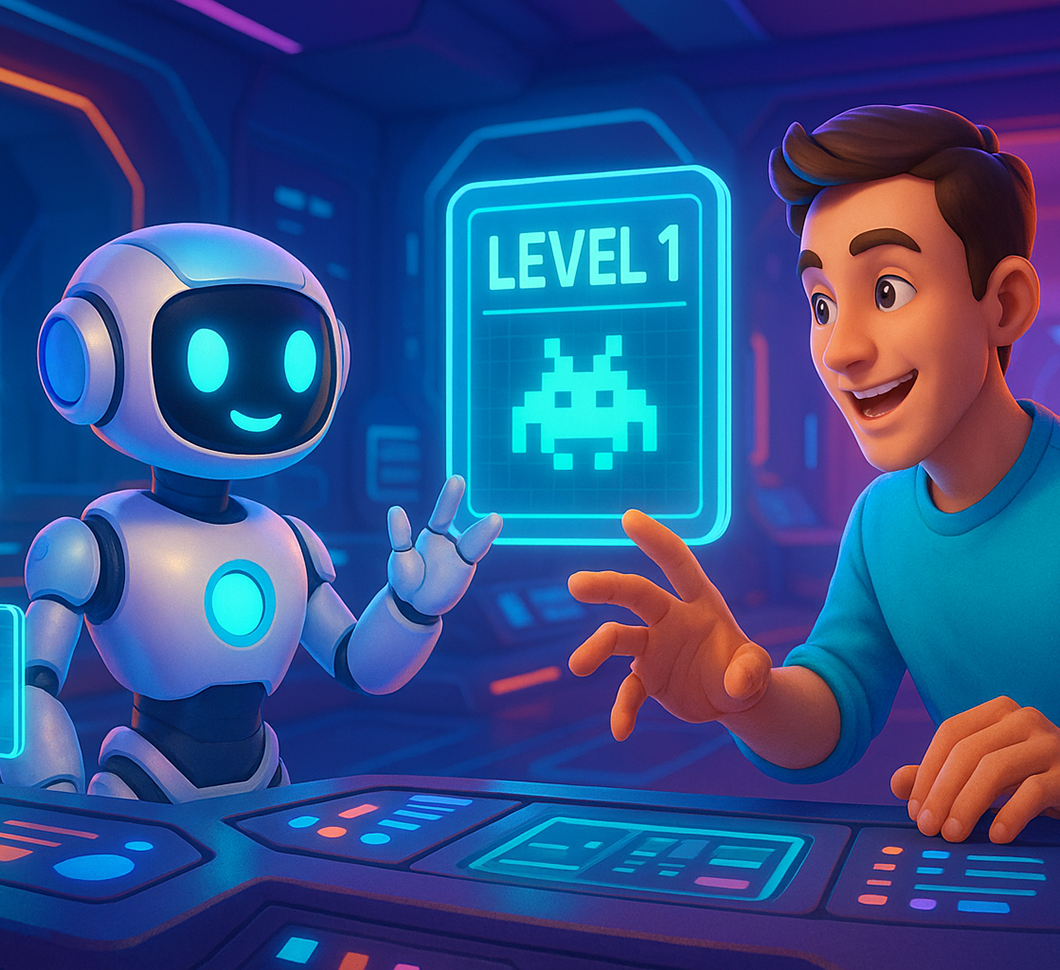 AI Game Assistant Integration for Smarter, Player-Responsive Games
AI Game Assistant Integration for Smarter, Player-Responsive Games 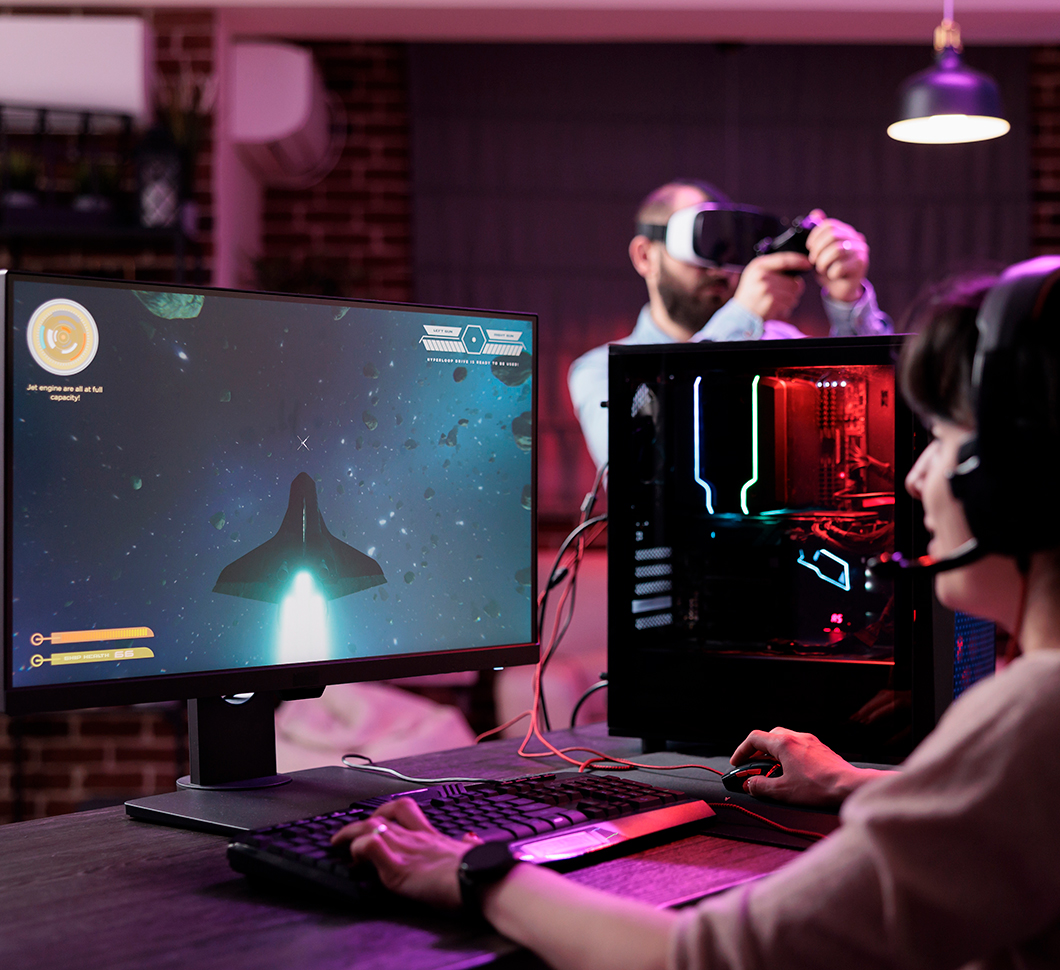 Beyond Reality: What Is a Simulation Game and Why It Matters Today
Beyond Reality: What Is a Simulation Game and Why It Matters Today  Proof of Concept Game: The First Step Toward a Full-Scale Game
Proof of Concept Game: The First Step Toward a Full-Scale Game 












